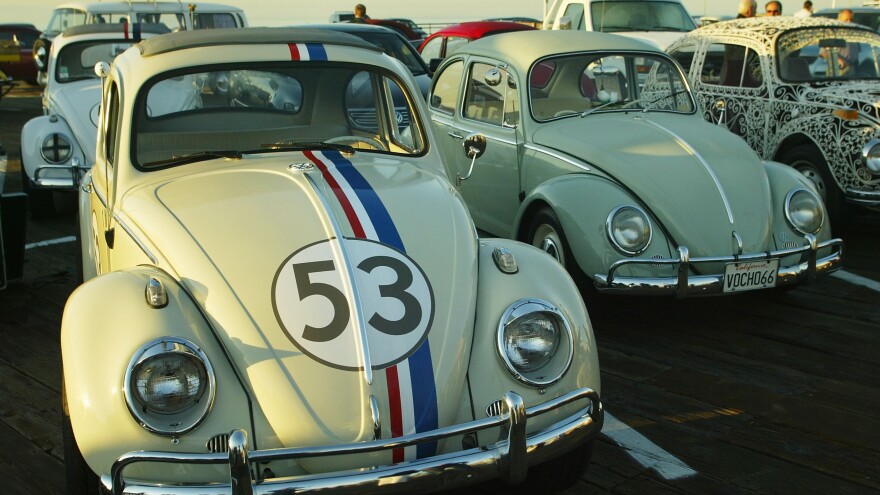American culture has long held a soft spot for Volkswagen. There was Herbie in the 1968 comedy The Love Bug. And, more recently, the chronically honking, classic VW bus featured in Little Miss Sunshine.
Volkswagen also cultivated its image as a progressive, countercultural icon in its advertising. There were the three elderly sisters who touted the merits of clean diesel. And its various ads talking up German engineering. But now, that's all turning against it.
"They were amazing commercials and they created this enthusiasm," says David Whitcomb of Waynesboro, Va., who bought so much into the company's ethos that he owns four Volkswagens. "They talked about driving for love and ... man, it's hard to talk that way right now."
In addition to its legal, regulatory and financial problems, Volkswagen has serious image problems. Revelations that it cheated on emissions tests and that its diesel engines aren't as clean as advertised are not sitting well with its customers. And now the carmaker is trying to navigate its way out of a damaged reputation.

"I think Volkswagen is playing a long-term game," says Eric Dezenhall, CEO of Dezenhall Resources, a crisis-management firm. He says VW has clearly put itself in a world of pain, but he says a comeback is still very likely.
"I think that if you evaluate how well a company is doing in mid-crisis, it's sort of like trying to figure out how well the patient is doing in mid-surgery," he says.
Earlier this week, VW's chairman warned that the scandal poses an existential threat. Yesterday, the company's new CEO warned employees of financial retrenchment; the company will pare back or delay nearly all planned investments. Meanwhile, VW's investigation is reportedly focusing on at least three top executives, who are among those who've been suspended.
And that trickle of bad news does not help, Dezenhall says. However, "to some degree, the drip-drip of allegation is a part of the process," he says.
One mistake companies often make is they try to seek the fastest path out of their public relations nightmare. But Dezenhall says the public does not take kindly to companies dealing with self-inflicted wounds trying to put a happy face on bad news.
"The crisis has to pass through the system," he says. "You've got to go through CEO firings, you have to go through lawsuits, you have to go through congressional hearings — these are all of the rituals that you have to survive."
So, going forward: Be honest. And, he says, focus on the substance. VW must successfully recall the cars, fix the problems and offer incentives to loyal customers. Those are not issues marketing alone can solve.
"It's not messaging and spend that are going to vindicate them," Dezenhall says.
Joan Schmit, a professor of risk management at the University of Wisconsin, Madison, says Volkswagen set itself up by touting its German engineering and environmentalist credibility in its various ad campaigns.
"That is one of the ironies of reputation — both development and maintenance — that, of course, we have to be who we say we are," she says. "And if it turns out that we are less than who we say we are, that's going to be damaging."
Schmit says VW has a long history and good reputation heading into this crisis. The company could still redeem itself. But, she says, it will take a very, very long time.
Copyright 2020 NPR. To see more, visit https://www.npr.org.



